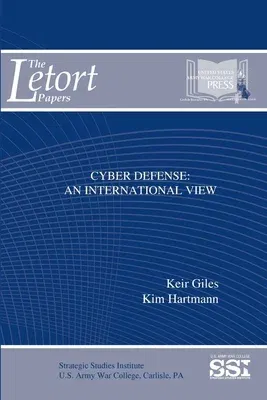Keir Giles
(Author)Cyber Defense: An International ViewPaperback, 23 December 2015

Qty
1
Turbo
Ships in 2 - 3 days
In Stock
Free Delivery
Cash on Delivery
15 Days
Free Returns
Secure Checkout
Print Length
64 pages
Language
English
Publisher
Lulu.com
Date Published
23 Dec 2015
ISBN-10
1329784030
ISBN-13
9781329784031
Description
Product Details
Book Format:
Paperback
Country of Origin:
US
Date Published:
23 December 2015
Dimensions:
22.86 x
15.24 x
0.38 cm
ISBN-10:
1329784030
ISBN-13:
9781329784031
Language:
English
Pages:
64
Publisher:
Weight:
104.33 gm

